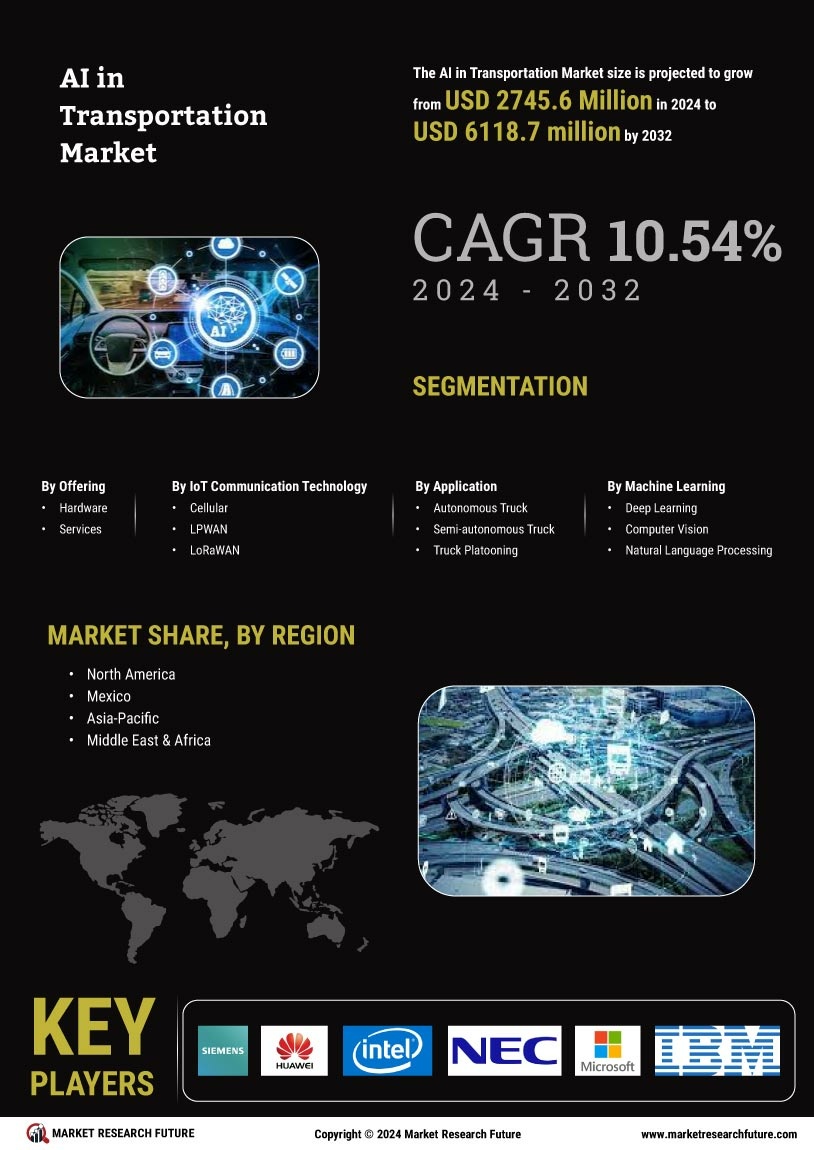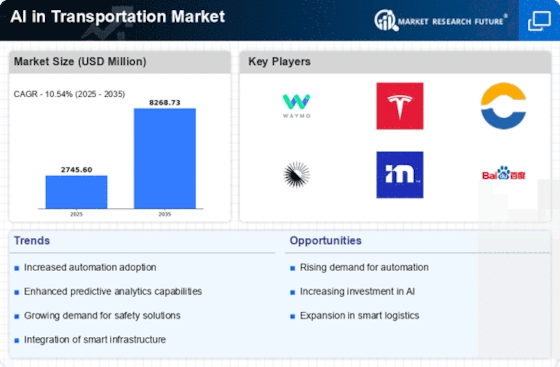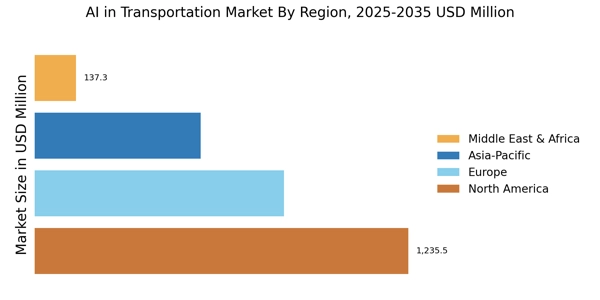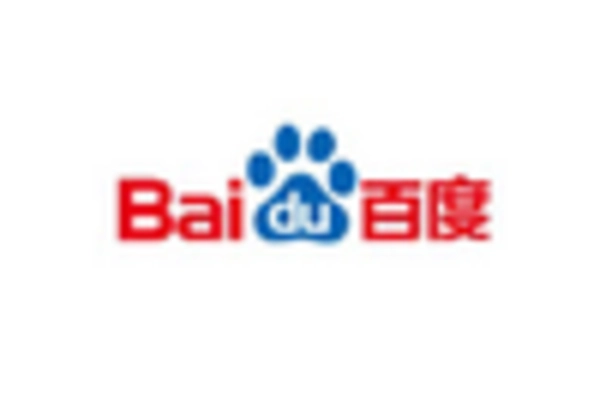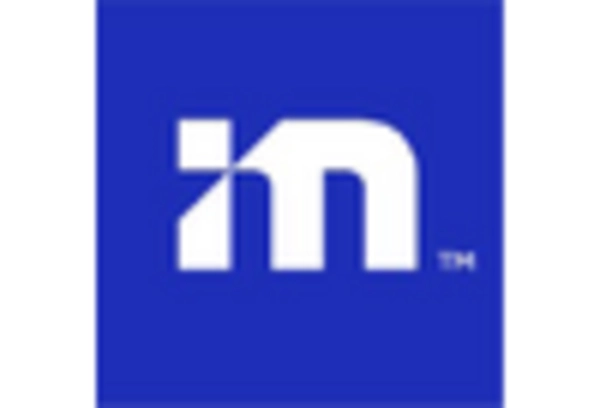Integration of Smart Infrastructure
The AI in Transportation Market is witnessing a significant trend towards the integration of smart infrastructure. Cities and municipalities are increasingly adopting AI technologies to optimize traffic flow, reduce congestion, and enhance public transportation systems. Smart traffic signals, equipped with AI algorithms, can adapt in real-time to changing traffic conditions, thereby improving overall efficiency. Data indicates that cities implementing smart infrastructure can experience a reduction in traffic delays by approximately 20%. This integration not only enhances the user experience but also contributes to environmental sustainability by reducing emissions. As urbanization continues to rise, the demand for smart infrastructure solutions is expected to propel the AI in Transportation Market.
Growing Demand for Safety and Efficiency
The AI in Transportation Market is experiencing a notable surge in demand for enhanced safety and operational efficiency. As transportation systems become increasingly complex, stakeholders are prioritizing technologies that can mitigate risks and improve safety outcomes. AI-driven solutions, such as advanced driver-assistance systems (ADAS), are being integrated into vehicles to reduce accidents and enhance overall safety. According to recent data, the implementation of AI technologies in transportation has the potential to decrease road fatalities by up to 30%. This growing emphasis on safety is likely to drive investments in AI solutions, as companies seek to comply with regulatory standards and meet consumer expectations for safer travel.
Advancements in Machine Learning Algorithms
The AI in Transportation Market is significantly influenced by advancements in machine learning algorithms. These algorithms are becoming increasingly sophisticated, enabling more accurate predictions and decision-making processes in transportation systems. For instance, machine learning can analyze vast amounts of data from various sources, such as traffic patterns and weather conditions, to optimize routing and scheduling for logistics companies. This capability is particularly crucial as the logistics sector is projected to grow by 4.5% annually. The ability to leverage machine learning for predictive analytics is likely to enhance operational efficiency and reduce costs, thereby driving further adoption of AI technologies in transportation.
Emergence of Electric and Autonomous Vehicles
The AI in Transportation Market is significantly shaped by the emergence of electric and autonomous vehicles. As the automotive industry shifts towards electrification and automation, AI technologies play a crucial role in enabling these advancements. Electric vehicles (EVs) equipped with AI systems can optimize energy consumption and enhance driving performance. Furthermore, the development of fully autonomous vehicles relies heavily on AI for navigation, obstacle detection, and decision-making. The market for electric and autonomous vehicles is projected to grow at a compound annual growth rate (CAGR) of 20% over the next decade. This trend indicates a robust future for AI in transportation, as these vehicles require sophisticated AI systems to operate safely and efficiently.
Rising Investment in Smart Mobility Solutions
The AI in Transportation Market is benefiting from a rising investment in smart mobility solutions. Governments and private entities are increasingly allocating funds towards the development of innovative transportation systems that leverage AI technologies. This investment is aimed at creating more efficient, sustainable, and user-friendly transportation options. For example, the market for smart mobility solutions is expected to reach USD 200 billion by 2026, driven by the need for improved urban mobility. As cities grapple with congestion and pollution, the push for smart mobility solutions is likely to accelerate the adoption of AI in transportation, fostering a more integrated and efficient transportation ecosystem.
